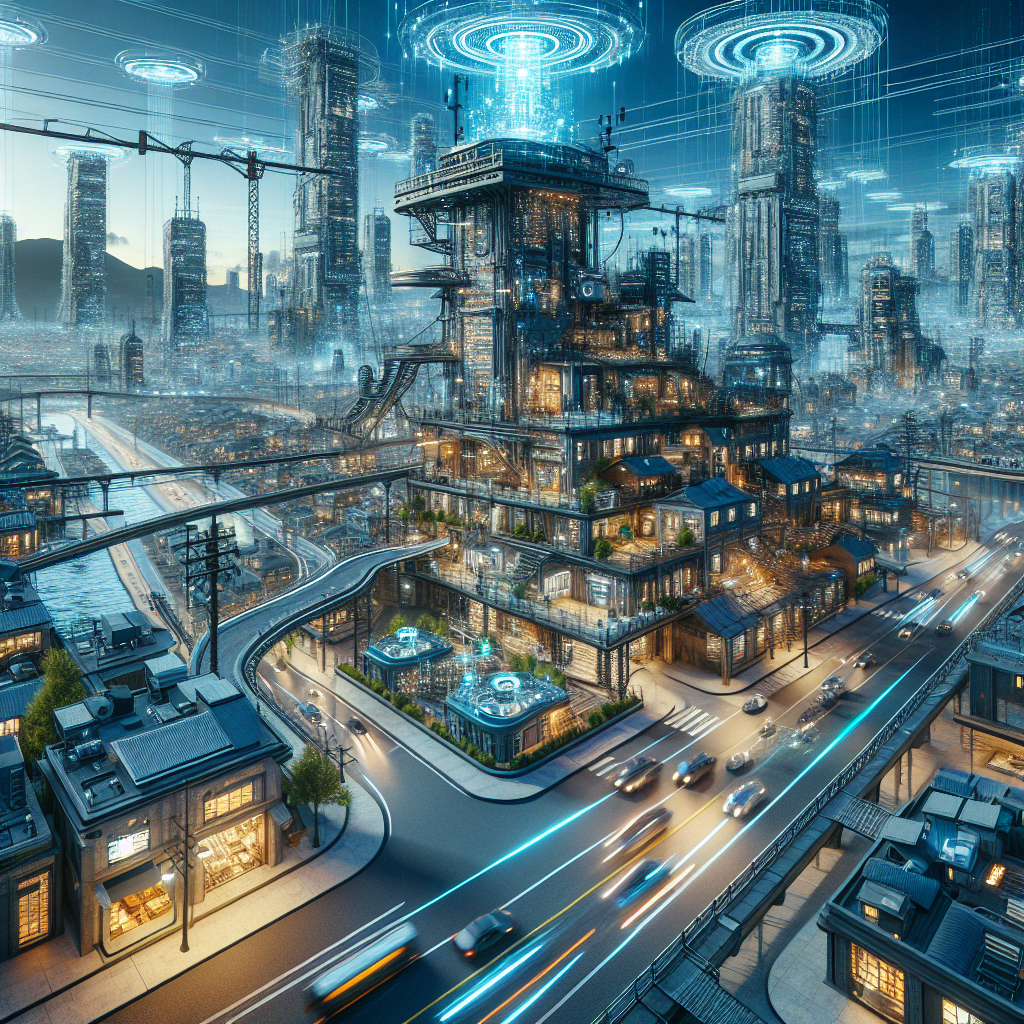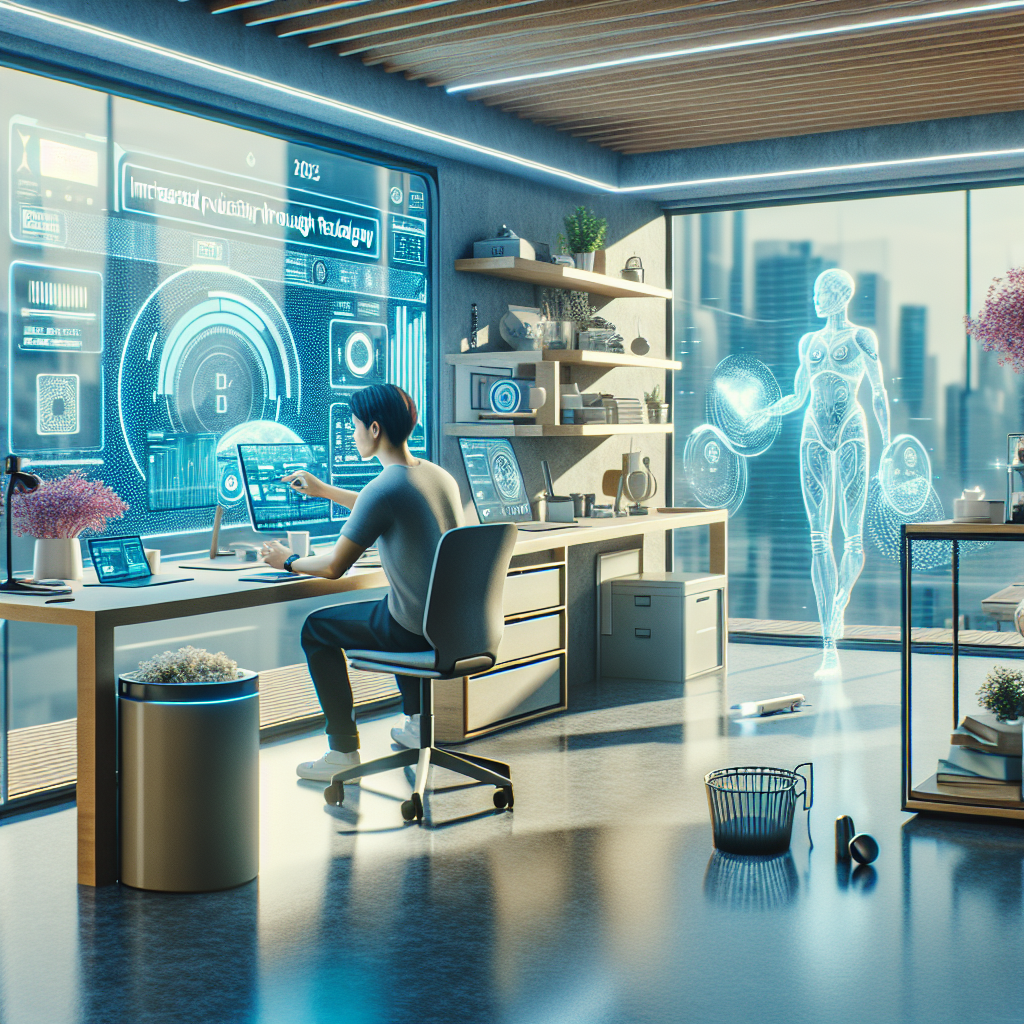The AI impact unfolding in 2025 promises to reshape industries, daily life, and global economies in ways few anticipated. As artificial intelligence evolves beyond traditional boundaries, it’s not just technical improvements driving change—it’s the unexpected ways AI will integrate into society that will redefine human potential and challenge existing frameworks. From revolutionizing healthcare diagnostics to transforming creative arts and ethical decision-making, this new era of AI innovation goes beyond simple automation. Understanding the profound AI impact set for 2025 is essential for anyone wanting to stay ahead in a rapidly changing world.
How AI Impact Will Revolutionize Healthcare
Advancements in AI algorithms and machine learning models are accelerating breakthroughs in healthcare with remarkable precision and speed. By 2025, the AI impact will extend to diagnostics, treatment personalization, and patient monitoring.
AI-Enhanced Diagnostics
AI-powered tools can analyze vast datasets of medical images and patient histories rapidly, outperforming traditional methods in detecting diseases early. For instance:
– AI algorithms can identify subtle signs of cancer on imaging scans years before symptoms manifest.
– Predictive analytics help in forecasting patient risks for conditions like stroke or diabetes complications.
– Chatbots powered by natural language processing provide preliminary medical advice, improving access to healthcare.
Personalized Treatment Plans
AI impact in healthcare is moving toward treatments tailored specifically to a patient’s genetic makeup and lifestyle. This means:
– Customized drug therapies enhancing effectiveness and reducing side effects.
– Real-time adjustment of treatment protocols based on patient response monitored through wearable devices.
– AI models simulating how treatments affect an individual, minimizing trial-and-error.
Remote Patient Monitoring and Telehealth
With advancements in sensor technology and AI analysis, continuous remote monitoring becomes viable, offering:
– Early detection of health deteriorations through AI alerts.
– Improved chronic disease management with fewer hospital visits.
– Expansion of healthcare to underserved areas using AI-driven telemedicine platforms.
Transforming the Workplace: AI Impact on Jobs and Productivity
The workforce will see a profound shift not just in automation but in how humans and AI collaborate to achieve more.
AI as an Augmentation Tool
Rather than replacing employees outright, AI will amplify human capabilities:
– AI assistants helping with data analysis, freeing workers to focus on creative and strategic tasks.
– Automation of repetitive processes leading to increased productivity without job loss.
– Continuous learning platforms powered by AI tailor employee training programs.
Emerging Job Roles
New roles requiring human-AI interaction expertise will emerge, including:
– AI trainers to improve algorithm accuracy.
– Ethics consultants ensuring AI applications align with societal values.
– AI system auditors monitoring for bias and security compliance.
Reskilling and Adaptation Challenges
The AI impact necessitates large-scale workforce retraining to handle new tools and roles. Organizations must:
– Invest in upskilling programs focused on critical thinking, digital literacy, and emotional intelligence.
– Foster cultures of lifelong learning to stay competitive during rapid technological advances.
AI’s Unseen Shake-Up in Creative Industries
While AI’s role in creative fields has been underestimated, 2025 will reveal its transformative AI impact on art, music, literature, and design.
Creative Collaboration Between Humans and AI
AI tools are no longer just assistants; they participate as co-creators:
– AI-generated draft designs serve as starting points for human refinement.
– Music composition AI that experiments with innovative styles, inspiring composers.
– Literature tools aiding authors by suggesting plot directions or improving style consistency.
Democratizing Creativity
AI will make creative expression accessible to more people by:
– Providing user-friendly interfaces to create art or music without formal training.
– Offering personalized creative prompts and feedback.
– Reducing entry barriers for content creators worldwide.
Ethical and Authenticity Concerns
Questions about originality and authorship arise from AI-generated content, requiring new standards for:
– Attribution of creative work utilizing AI.
– Preventing misuse such as deepfakes or plagiarized artwork.
– Ensuring diverse cultural representation in AI training sets.
The AI Impact on Ethical Decision-Making and Governance
Beyond practical applications, AI’s influence extends deeply into ethical considerations and societal governance.
Algorithmic Bias and Fairness
As AI impacts more decisions, from hiring to criminal justice, addressing embedded biases becomes critical:
– Transparent AI models to allow scrutiny and accountability.
– Diverse datasets to reduce systemic biases.
– Ongoing monitoring to prevent discriminatory outcomes.
AI in Policy and Regulation
Governments will leverage AI for policy analysis and enforcement but also face challenges:
– Automating administrative decisions to increase efficiency.
– Predictive analytics for public safety and resource allocation.
– Balancing innovation with privacy, security, and civil liberties protections.
Global Cooperation and AI Governance
The AI impact necessitates multinational collaboration to:
– Establish international standards and ethical guidelines.
– Prevent AI misuse in cyber warfare or misinformation campaigns.
– Promote equitable AI benefits across developing and developed nations.
Preparing Businesses for the AI-Driven Economy
Businesses that understand and adapt to the AI impact will outperform their competitors in 2025 and beyond.
Strategic AI Adoption
– Identify areas where AI can create measurable value, e.g., customer service, supply chain, or R&D.
– Pilot projects to test feasibility and fine-tune AI integration.
– Invest in AI-ready infrastructure and data management.
Cultivating an AI-Literate Workforce
– Train employees on AI tools and data literacy.
– Encourage collaboration between technical experts and business leaders.
– Emphasize creativity and emotional intelligence as complementary to AI capabilities.
Staying Ahead with Continuous Innovation
– Monitor AI trends and emerging technologies.
– Partner with AI startups or research institutions.
– Foster a culture open to experimentation and rapid iteration.
Looking Ahead: Adapting to the New AI Landscape
The unfolding AI impact in 2025 is more than incremental progress; it’s a paradigm shift touching every facet of our lives. From personalized healthcare breakthroughs and dynamic workplace collaborations to creative revolutions and complex ethical considerations, AI is transforming society in unpredictable ways. Embracing these changes with an open but critical mindset will position individuals, organizations, and governments for success in an AI-enhanced future. Don’t wait for change to catch you off guard—start exploring how AI can elevate your world today.
Ready to harness the full potential of AI impact for your business or organization? Visit automatizacionesaiscend.com to connect with experts who can guide your AI journey every step of the way.



